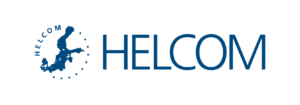4 September 2013 – , of which is a partner and a member of a steering
group, has recently published a in which new recommendations are proposed for improving the
environmental condition of the Baltic Sea. HELCOM brought to the cluster the
knowledge and expertise obtained through the , , and projects. The cluster has acted
as a platform to harvest some most meaningful outcomes of a few major regional
projects, to effectively feed into the main objectives of the HELCOM’s Baltic
Sea Action Plan and, more specifically, to provide input to the The report “Sustainable resource management for a healthy
Baltic Sea” is released as a result of the work done under Baltic Impulse – a
cluster of fifteen partners representing nine environmental projects running
under the Baltic Sea Region Programme 2007-2013. All the partner projects try to
define and find ways to mitigate the environmental impact of different
anthropogenic pressures on the Baltic Sea, and to revise the common management
actions. The aim of the cluster is to ensure further use of outcomes of the
partner projects and to increase their visibility. Thus, both the
recommendations proposed by the partners of Baltic Impulse and accompanying more
extensive cross-project summaries draw on the knowledge and experience obtained
through the project work. Baltic Impulse will finalise in September 2013 after
one year of operationThe project recommendations, summarising the central points
of the work done in the cluster, constitute a vital part of the synthesis
report. They focus on two main areas: farm-based practices and public
management. As the ultimate goal, they envision a bio-based society with
conscious, well-informed and publicly involved farmers acting as responsible
managers, taking into account the environmental risks and possibilities embedded
in their agricultural practices. Highlights of the reportAs a first thing to achieve a bio-based society, the cluster
partners suggest certain changes in public management with regard to farming,
especially focusing on the need for improved and more conscious planning as well
as increased involvement of the farmers. In particular, the Baltic Impulse
recommendations concern:Enhanced mapping of crucial parameters (e.g. nitrogen and phosphorus) for the long-time farm and public management.Popularisation of adequate risk assessment procedures.Implementation of the continuous farm advisory system.Active and knowledge-based involvement of the farmers in the betterment of the environmental state of the Baltic.Improvement of the governance frameworks to harmonise national practices and HELCOM requirements.The recommendations enlisted in the cluster’s synthesis
report describe also how the farmers should contribute to the protection of the
Baltic Sea. If advised and supported, they can apply environmentally sound
practices and far-sighted resource management on their farms. Advocated are
primarily:Good practices encompassing improved handling of fodder, fertiliser and, especially, manure.A radical alternation of the perception of manure, from waste into resource (“brown gold”).Refined treatment of manure, including e.g. retrieving and recirculation of nutrients that can lay the foundations for the bio-based society, integrating bioenergy production and improved nutrient management. The complete “Sustainable resource management for a healthy
Baltic Sea” report can be downloaded from A recent brochure, “Baltic Impulse – Saving the Baltic Sea
Waters” prepared by can be downloaded from ** is a cluster of the following nine environmental projects
running under Baltic Sea Region Programme 2007-2013:Baltic Compass Baltic Deal Baltic Manure Beras Implementation COHIBA PURE PRESTO SMOCS Waterpraxis * * Note for editors:The Baltic Marine Environment Protection Commission, usually
referred to as the Helsinki Commission HELCOM, is an
intergovernmental organisation of the nine Baltic Sea coastal countries and the
European Union working to protect the marine environment of the Baltic Sea from
all sources of pollution and to ensure safety of navigation in the regionHELCOM is the governing body of the legal treaty from 1974,
“Convention on the Protection of the Marine Environment of the Baltic Sea Area,”
also known as the Helsinki Convention * * *For further information, please contact:Ms Johanna LaurilaInformation SecretaryHELCOMTel:
+358 (0)40 5238988E-mail: Ms Kinga PolynczukCommunication Assistant (EU-Baltic
Impulse)HELCOMTel: +358 207 412 646E-mail:
Baltic Impulse cluster, of which HELCOM is a partner and a member of a steering group, has recently published a synthesis report in which new recommendations are proposed for improving the environmental condition of the Baltic Sea.

